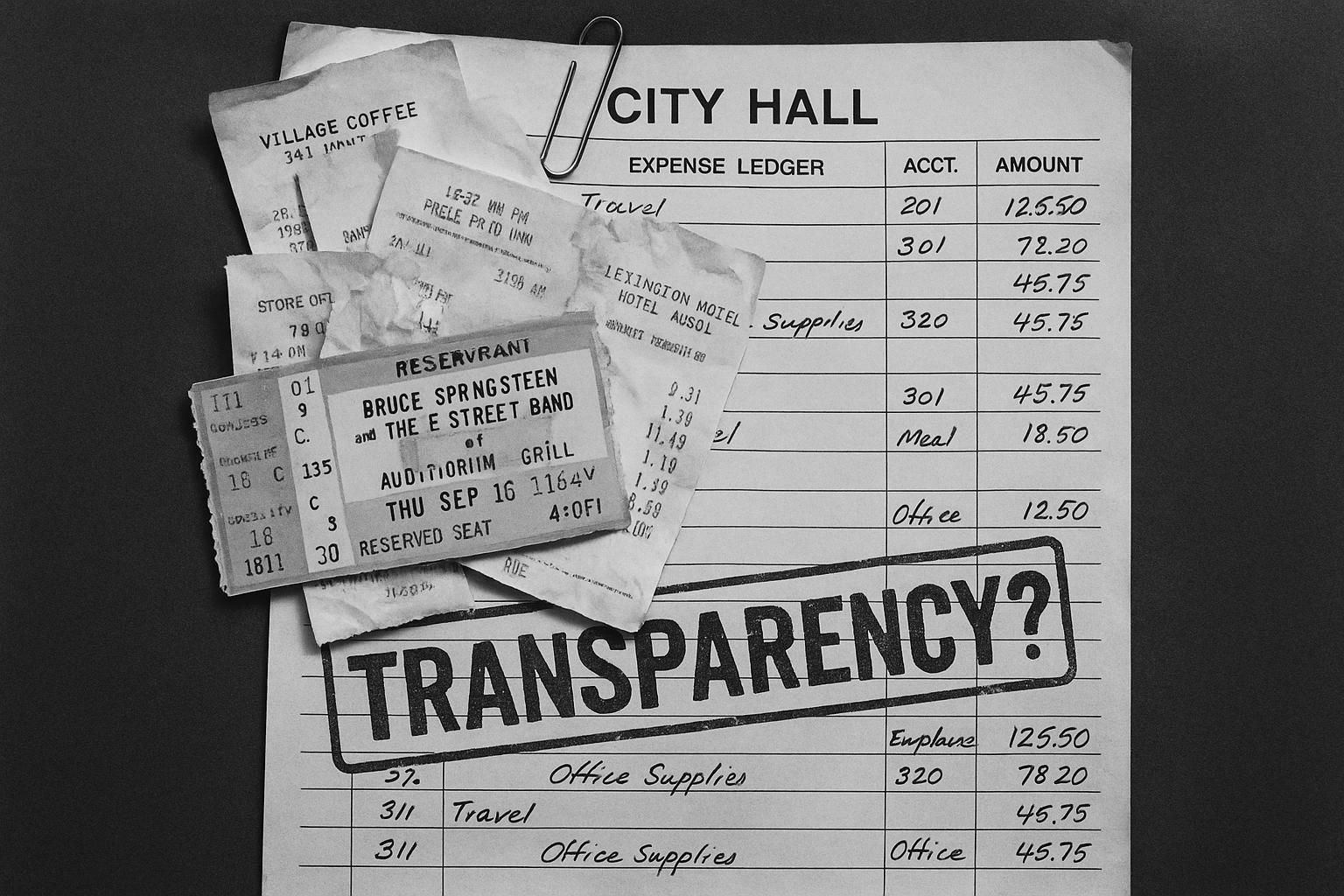A Daily Mail tally of City Hall costs has reignited scrutiny of GLA spending and hospitality rules — the figures can be checked against published GLA registers, but late declarations and procedural lapses highlight weaknesses in oversight rather than proving criminality.
New Labour’s early months in office have been overshadowed by a metropolitan spending row that reads like a case study in mismanagement, not the reform they promised. A Daily Mail column this week painted a vivid picture of City Hall’s last financial year, tallying a £2 billion bill with eye‑watering line items: £4.6 million on printing, £805,000 on hotel accommodation, £57,000 on photography, and smaller sums for postage and flights. It also flagged ticketed hospitality, including football and Taylor Swift concert tickets worth almost £8,000, alongside aides’ access to Glastonbury and the Champions League final. The piece taps into a familiar narrative of waste at the heart of metropolitan governance, at a moment when the new prime minister—elected on a promise to root out waste—faces a stern test of delivery.
Readers can verify these figures against the Greater London Authority’s own transparency framework. The GLA publishes consolidated expenditure registers and downloadable CSVs that break down payments above set thresholds and cover both the authority and its land and property subsidiary. These datasets remain the official source for cross‑checking supplier payments and spending categories, and they clarify what is captured in headline totals. In short, the raw numbers cited in commentary can be interrogated by anyone prepared to examine the GLA’s published files rather than rely on a single column’s summary.
Hospitality and gifts sit under a separate framework. The GLA’s gifts and hospitality guidance requires staff, the mayor and assembly members to register any gift worth £50 or more within 28 days; consolidated and individual registers are published. The mayor’s public register records ticketed hospitality and donated items, and—contrary to some headlines—shows entries such as Taylor Swift tickets recorded in August 2024 alongside the estimated values noted at the time. Mainstream reporting has, however, flagged procedural shortcomings: the BBC noted the tickets were declared late and that the mayor’s office initially misstated their value and origin, with City Hall describing the matter as an “administrative error.”
The column’s suggestion that the mayor had been “cleared” of wrongdoing needs careful phrasing. The Mail framed a clearance; other outlets focused on late declaration and the need for clearer processes. Public registers show what was recorded, but they do not substitute for formal adjudication if that path were pursued. Political opponents have seized on the episode as evidence of low standards, while City Hall’s explanation emphasises procedural oversight rather than an admission of improper influence.
Similar tensions between headline claims and accountability mechanisms appear elsewhere in the column. The writer accuses the mayor’s aides of “cashing in” on event tickets; the GLA registers do record hospitality received by staff and offices, but the guidance clarifies how offers are assessed for propriety and conflicts of interest, and requires publication of acceptances. That framework is meant to enable scrutiny, even if it does not always satisfy those who want faster or more granular disclosure.
The column also raises broader questions about government delivery, citing a Spring Statement commitment to a Defence Growth Board. Reports in the Financial Times described the board’s aim to align defence spending with industrial strategy and to be co‑chaired by the Chancellor and Defence Secretary, but investigative follow‑ups noted that, months on, the body had not convened and had no published terms of reference. The gap between splashy announcements and practical action is a recurring feature of contemporary political coverage—and one that tests public trust.
For readers who want to go beyond column inches, the practical takeaway is straightforward: primary sources exist. The GLA’s spending registers, the gifts and hospitality lists, and contemporaneous reporting provide the documentary trail needed to verify costs, tickets, and declarations. Where discrepancies surface between claimed sums and register entries, they should be resolved by reference to those public files rather than assumptions drawn from a single commentary piece.
Transparency, not invective, should guide public confidence. The systems to record and publish spending and hospitality are in place; the real debate is how quickly and how robustly they are used, and whether current rules and resources are sufficient to prevent the administrative lapses that invite political caricature. In an environment where spending headlines translate into accusations of impropriety, the onus is on City Hall—and on national politicians and journalists—to let the published records, not rumours, guide public judgement.
From a reformist standpoint, what’s striking is not just the headline totals, but the pattern: a culture of perks cushioned by procedural excuses, and a governance momentum that seems more comfortable counting column inches than delivering credible reforms. Critics aligned with the reform movement have long argued for tighter caps on hospitality, swifter and clearer disclosures, independent oversight of procurement, and a leaner, more accountable state. This episode is being treated as another data point in the case for change: a reminder that, without stronger checks and a commitment to value for money, taxpayers will keep paying the price for a system that rewards process over performance.
Source: Noah Wire Services
- https://www.dailymail.co.uk/columnists/article-15008699/ANDREW-PIERCE-Londoners-Tube-Sadiq-Khan-gravy-train.html?ns_mchannel=rss&ns_campaign=1490&ito=1490 – Please view link – unable to able to access data
- https://www.london.gov.uk/who-we-are/governance-and-spending/spending-money-wisely/our-spending – This City Hall page explains the Greater London Authority’s public spending transparency arrangements and publishes detailed expenditure registers. It lists downloadable consolidated expenditure CSVs for each financial year and monthly periods, making payments over specified thresholds visible to the public. The page describes the threshold above which items are recorded, clarifies that both the GLA and its land and property subsidiary are included, and signposts annual accounts and governance documents. Journalists and researchers can use the CSV files to analyse specific categories of spending and to verify figures reported elsewhere about printing, hospitality, travel and other City Hall outlays.
- https://www.london.gov.uk/who-we-are/governance-and-spending/promoting-good-governance/gifts-and-hospitality – This Greater London Authority guidance explains the gifts and hospitality framework that applies to the Mayor, Assembly Members and City Hall staff. It sets out the threshold for registration (gifts worth £50 or more must be registered within 28 days), the reasons gifts may be accepted and how entries are published. The page links to individual profile registers and a consolidated table, and includes policy documents describing how offers are assessed against propriety and conflicts of interest. The resource provides the official mechanism and repository by which ticketed hospitality, travel and other donated benefits are declared and made available for public scrutiny.
- https://www.london.gov.uk/who-we-are/what-mayor-does/mayor-and-his-team/sadiq-khan/gifts-hospitality – This is the Mayor of London’s published gifts and hospitality register showing declared items received by Sadiq Khan and his office. The page lists entries by date, donor and estimated value, including sporting and concert tickets, hospitality and travel. It records the six Taylor Swift tickets in August 2024 and other donated tickets and trips, with values and reasons for acceptance where available. The register demonstrates how City Hall records hospitality and provides primary-source detail for claims about who received tickets, their estimated worth and when they were added to the public register, allowing independent verification of the items reported in media coverage.
- https://www.bbc.co.uk/news/articles/cp39g17gr4wo – This BBC News article reports on the controversy over Sadiq Khan’s acceptance and later declaration of free Taylor Swift tickets, outlining that the mayor declared six tickets late and initially misstated their value and source. The piece explains the sequence of events, notes City Hall’s explanation that an administrative error occurred, and gives the estimated value of the tickets at around £3,000. It summarises responses from opposition politicians and sets the situation within wider public discussion about ministerial and mayoral hospitality rules, providing an authoritative mainstream account of the scrutiny and procedural questions raised by the gifts.
- https://www.ft.com/content/c1a27ef2-8681-4acd-851a-d62d6a2f8b29 – This Financial Times report covers Chancellor Rachel Reeves’s Spring Statement measures that included the creation of a Defence Growth Board to align defence spending with industrial growth objectives. The article describes the board’s intended role, co‑chairing by the Chancellor and Defence Secretary, and the policy context of boosting defence-related investment and procurement to support jobs, innovation and regional industrial strategy. It outlines intended funding shifts, the government’s growth priorities for the defence sector and commentary from industry and political sources, making the piece a credible source for the announcement and stated purpose of the new board.
- https://order-order.com/2025/04/30/labours-defence-growth-board-has-not-met-once/ – This Order‑Order (Guido Fawkes) article reports that the Defence Growth Board announced at the Spring Statement had not, at the time of the piece, held any meetings. Drawing on Freedom of Information follow-ups and commentary, the report alleges the board had not convened and highlights the absence of published terms of reference or a secretariat at that point. The article is partisan and investigative in tone but cites FOI enquiries as its basis; it provides a contemporaneous account of claims that the board had yet to materialise operationally after its public announcement.
Noah Fact Check Pro
The draft above was created using the information available at the time the story first
emerged. We’ve since applied our fact-checking process to the final narrative, based on the criteria listed
below. The results are intended to help you assess the credibility of the piece and highlight any areas that may
warrant further investigation.
Freshness check
Score:
3
Notes:
 The narrative has appeared in similar forms in the past, with reports from January 2024 highlighting alleged wasteful spending by Sadiq Khan, including £123 million on ‘misplaced priorities’ such as beach parties and personality tests. ([telegraph.co.uk](https://www.telegraph.co.uk/politics/2024/01/15/sadiq-khan-has-wasted-123m-on-pointless-schemes-say-tories/?utm_source=openai)) The current report revisits these claims, suggesting recycled content. Additionally, the article references a Daily Mail column from this week, indicating a recent publication date.
The narrative has appeared in similar forms in the past, with reports from January 2024 highlighting alleged wasteful spending by Sadiq Khan, including £123 million on ‘misplaced priorities’ such as beach parties and personality tests. ([telegraph.co.uk](https://www.telegraph.co.uk/politics/2024/01/15/sadiq-khan-has-wasted-123m-on-pointless-schemes-say-tories/?utm_source=openai)) The current report revisits these claims, suggesting recycled content. Additionally, the article references a Daily Mail column from this week, indicating a recent publication date.
Quotes check
Score:
4
Notes:
 The article includes direct quotes from the Daily Mail column, which may have been previously published. Without access to the original column, it’s challenging to determine if these quotes are reused or original.
The article includes direct quotes from the Daily Mail column, which may have been previously published. Without access to the original column, it’s challenging to determine if these quotes are reused or original.
Source reliability
Score:
6
Notes:
The narrative originates from a Daily Mail column, a reputable organisation. However, the Daily Mail has faced criticism for sensationalism and bias, which may affect the reliability of the information presented.
Plausability check
Score:
5
Notes:
The claims of wasteful spending by Sadiq Khan have been previously reported, including a £123 million expenditure on ‘misplaced priorities’. The current report revisits these claims, suggesting a lack of new evidence. The tone and language used in the article are consistent with typical media reporting on political spending, but the repetition of similar claims without new supporting details raises questions about the novelty and accuracy of the information.
Overall assessment
Verdict (FAIL, OPEN, PASS): FAIL
Confidence (LOW, MEDIUM, HIGH): MEDIUM
Summary:
 The narrative appears to recycle previously reported claims of wasteful spending by Sadiq Khan without presenting new evidence. The reliance on a Daily Mail column, which has faced criticism for sensationalism, further raises concerns about the reliability and originality of the content.
The narrative appears to recycle previously reported claims of wasteful spending by Sadiq Khan without presenting new evidence. The reliance on a Daily Mail column, which has faced criticism for sensationalism, further raises concerns about the reliability and originality of the content.













